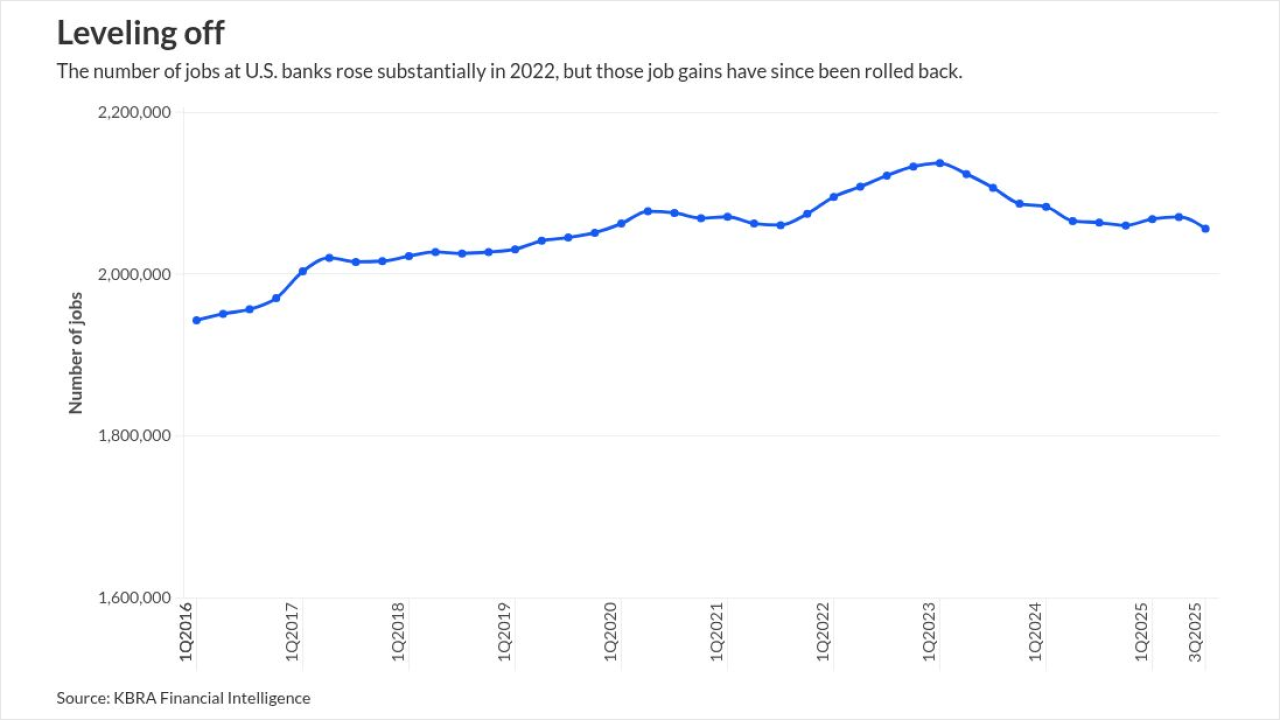Boston suddenly has a number of local banks looking to become regional powers.
Independent Bank in Rockland, Mass., recently agreed to buy Blue Hills Bancorp, a deal that will push the company above $11 billion in assets. Blue Hills is the largest M&A deal to date for the parent of Rockland Trust.
The acquisition will significantly increase the size of Independent’s operations in eastern Massachusetts. Independent will join the $12 billion-asset Berkshire Hills Bancorp, which is moving its headquarters to Boston from western Massachusetts, and the $11.3 billion-asset Eastern Bank, as the area's big community banks.
The added heft will help companies like Independent and Berkshire Hills better compete with the larger banks that control much of the region's deposits, and perhaps give them a leg up on other industry heavyweights, including JPMorgan Chase, moving into the Boston market.
While smaller than many other urban markets, Boston has enough room to accommodate several banks of that size, said Collyn Gilbert, an analyst at Keefe, Bruyette & Woods.

“It is a vast enough market for those guys to take share and grow at a decent clip,” Gilbert said.
Independent, Berkshire and Eastern have been growing at a time when consolidation has reduced the ranks of banks operating in Massachusetts. The number of banks doing business in the state is down 40% from 2000, totaling 145 right now, said Daniel Forte, president and CEO of the Massachusetts Bankers Association.
Still, there is enough business to go around to keep big community banks busy, industry observers said. As a result, scale is important to take market share and vie for acquisitions.
Blue Hills was interested in buying smaller banks, but struggled to compete against larger organizations, said William Parent, the $2.7 billion-asset company's president and CEO.
“High-quality acquisition growth did not seem to be avenue for us to pursue even though we had a good amount of capital,” Parent said. “We always seemed to be competing at a disadvantage to them because of size and currency value.”
Selling to Independent is bittersweet for Parent, who transformed Blue Hills from a small mutual to a publicly traded company with a recognizable brand. Still, he said partnering with a well-run bank like Independent benefits Blue Hills' employees, clients and shareholders.
“As we looked forward to future growth prospects, we started to see some dynamics in the hypercompetitive marketplace [and decided to] take all those great things we have created and partner with them,” Parent said.
Independent is a prolific acquirer, averaging a bank purchase every 18 months in the last 15 years.
Independent takes an opportunistic approach to M&A since it is difficult to predict when smaller banks will decide to sell, said Christopher Oddleifson, the company's president and CEO. While management has considered rebranding Rockland to better represent its expanded geography, Oddleifson said there are no plans to rename the company at this time.
Bank of America is the dominant retail bank in the Boston area, controlling 20% of total deposits. Citizens Financial Group, Santander and TD Bank are also major players.
Meanwhile, several outside banks are muscling into the Boston market. JPMorgan Chase recently announced plans to open 50 branches in the area over time. PNC Financial Services Group in Pittsburgh is keen on expanding its middle-market business, and Capital One Financial in McLean, Va., has been opening branchlike cafes.
“I think it shows that Boston clearly punches above its weight,” said Robert Rivers, Eastern Bank's chairman and CEO. “This is not a very big town compared to other major metropolitan areas. Nonetheless, it has a reputation certainly here as the financial capital of New England.”
Rivers said he is focused on making sure Eastern is well positioned to compete. While the mutual can’t go after larger stock deals, it may consider buying smaller mutuals, though nothing is imminent. Eastern’s last acquisition was in 2014, when it bought Centrix Bank & Trust in Bedford, N.H., for $134 million.
“But with any kind of disruption therein lies opportunity — I think we will be just fine,” Rivers said.





